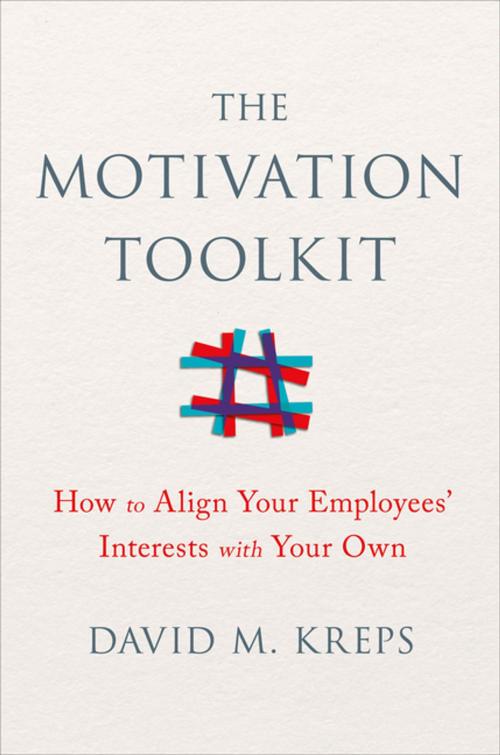The Motivation Toolkit: How to Align Your Employees' Interests with Your Own
Business & Finance, Human Resources & Personnel Management| Author: | David Kreps | ISBN: | 9780393254105 |
| Publisher: | W. W. Norton & Company | Publication: | January 9, 2018 |
| Imprint: | W. W. Norton & Company | Language: | English |
| Author: | David Kreps |
| ISBN: | 9780393254105 |
| Publisher: | W. W. Norton & Company |
| Publication: | January 9, 2018 |
| Imprint: | W. W. Norton & Company |
| Language: | English |
Renowned Stanford economist David M. Kreps reveals the fundamental principles of employee motivation.
Getting your employees to do their best work has never been easy. But it is a particular challenge for knowledge workers, who must attend to many different tasks and whose to-do list is often ambiguous, requiring outside-the-box thinking. Lists of dos and don’ts are rarely effective. Instead, your best bet is to align their interests with your own—the heart of motivation—and set them free to use their own drive and creativity on their, and your, behalf.
But how do you align their interests with your own? How do you avoid incentive schemes that warp priorities, encourage perfunctory and sloppy work, or cause unethical behavior?
In The Motivation Toolkit, economist and management expert David Kreps offers a variety of tools, drawn from the disciplines of economics and social psychology, that you can adapt to your specific situation to achieve better motivation. This starts with understanding both the economic and social relationship your employees have with their work, their jobs, and your organization, then using that understanding to find economic or psychological motivators that will work.
Whatever your business, and whether you’re a newly minted manager, a seasoned executive hungry for your employees’ best work, or a curious leader looking for new ways to be effective, The Motivation Toolkit will prove a useful and enlightening read.
Renowned Stanford economist David M. Kreps reveals the fundamental principles of employee motivation.
Getting your employees to do their best work has never been easy. But it is a particular challenge for knowledge workers, who must attend to many different tasks and whose to-do list is often ambiguous, requiring outside-the-box thinking. Lists of dos and don’ts are rarely effective. Instead, your best bet is to align their interests with your own—the heart of motivation—and set them free to use their own drive and creativity on their, and your, behalf.
But how do you align their interests with your own? How do you avoid incentive schemes that warp priorities, encourage perfunctory and sloppy work, or cause unethical behavior?
In The Motivation Toolkit, economist and management expert David Kreps offers a variety of tools, drawn from the disciplines of economics and social psychology, that you can adapt to your specific situation to achieve better motivation. This starts with understanding both the economic and social relationship your employees have with their work, their jobs, and your organization, then using that understanding to find economic or psychological motivators that will work.
Whatever your business, and whether you’re a newly minted manager, a seasoned executive hungry for your employees’ best work, or a curious leader looking for new ways to be effective, The Motivation Toolkit will prove a useful and enlightening read.















